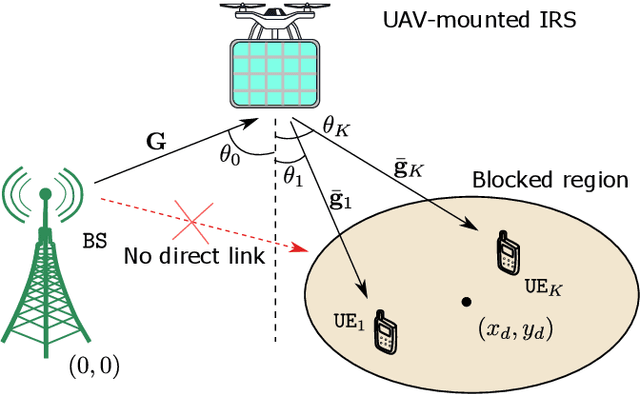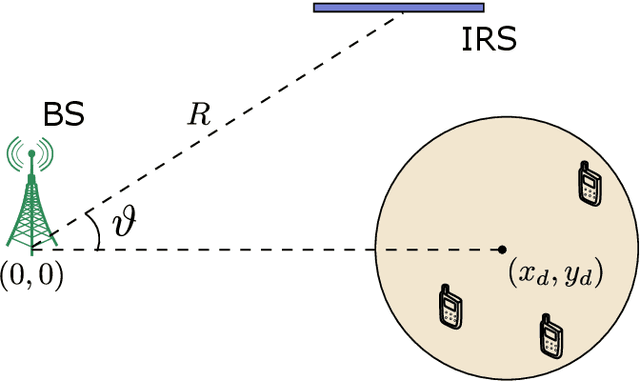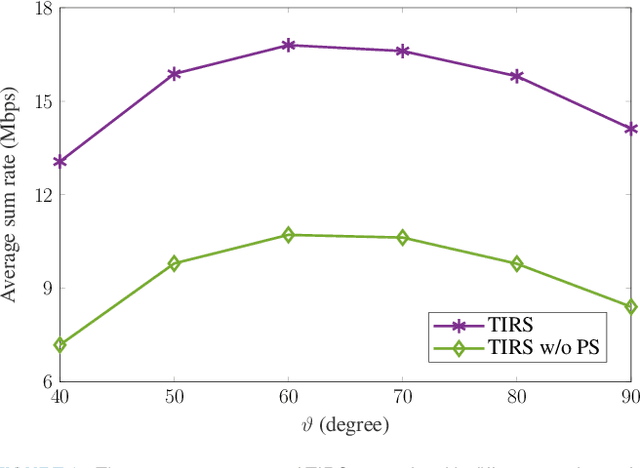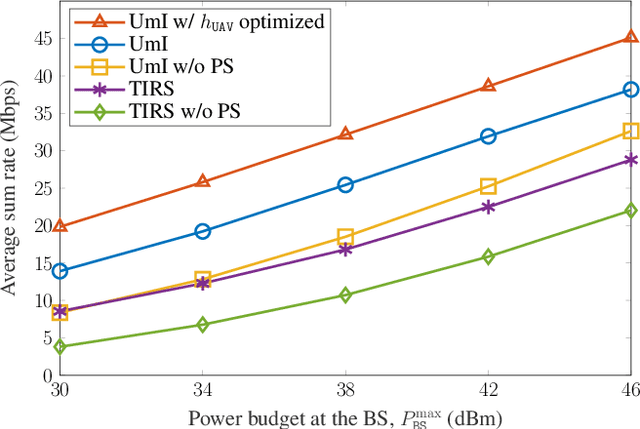Hieu V. Nguyen
Performance Analysis and Power Allocation for Massive MIMO ISAC Systems
Nov 16, 2024



Abstract:Integrated sensing and communications (ISAC) is envisioned as a key feature in future wireless communications networks. Its integration with massive multiple-input-multiple-output (MIMO) techniques promises to leverage substantial spatial beamforming gains for both functionalities. In this work, we consider a massive MIMO-ISAC system employing a uniform planar array with zero-forcing and maximum-ratio downlink transmission schemes combined with monostatic radar-type sensing. Our focus lies on deriving closed-form expressions for the achievable communications rate and the Cram\'er--Rao lower bound (CRLB), which serve as performance metrics for communications and sensing operations, respectively. The expressions enable us to investigate important operational characteristics of massive MIMO-ISAC, including the mutual effects of communications and sensing as well as the advantages stemming from using a very large antenna array for each functionality. Furthermore, we devise a power allocation strategy based on successive convex approximation to maximize the communications rate while guaranteeing the CRLB constraints and transmit power budget. Extensive numerical results are presented to validate our theoretical analyses and demonstrate the efficiency of the proposed power allocation approach.
Joint UAV Placement and IRS Phase Shift Optimization in Downlink Networks
Jul 14, 2022



Abstract:This study investigates the integration of an intelligent reflecting surface (IRS) into an unmanned aerial vehicle (UAV) platform to utilize the advantages of these leading technologies for sixth-generation communications, e.g., improved spectral and energy efficiency, extended network coverage, and flexible deployment. In particular, we investigate a downlink IRS-UAV system, wherein single-antenna ground users (UEs) are served by a multi-antenna base station (BS). To assist the communication between UEs and the BS, an IRS mounted on a UAV is deployed, in which the direct links are obstructed owing to the complex urban channel characteristics. The beamforming at the BS, phase shift at the IRS, and the 3D placement of the UAV are jointly optimized to maximize the sum rate. Because the optimization variables, particularly the beamforming and IRS phase shift, are highly coupled with each other, the optimization problem is naturally non-convex. To effectively solve the formulated problem, we propose an iterative algorithm that employs block coordinate descent and inner approximation methods. Numerical results demonstrate the effectiveness of our proposed approach for a UAV-mounted IRS system on the sum rate performance over the state-of-the-art technology using the terrestrial counterpart.
 Add to Chrome
Add to Chrome Add to Firefox
Add to Firefox Add to Edge
Add to Edge